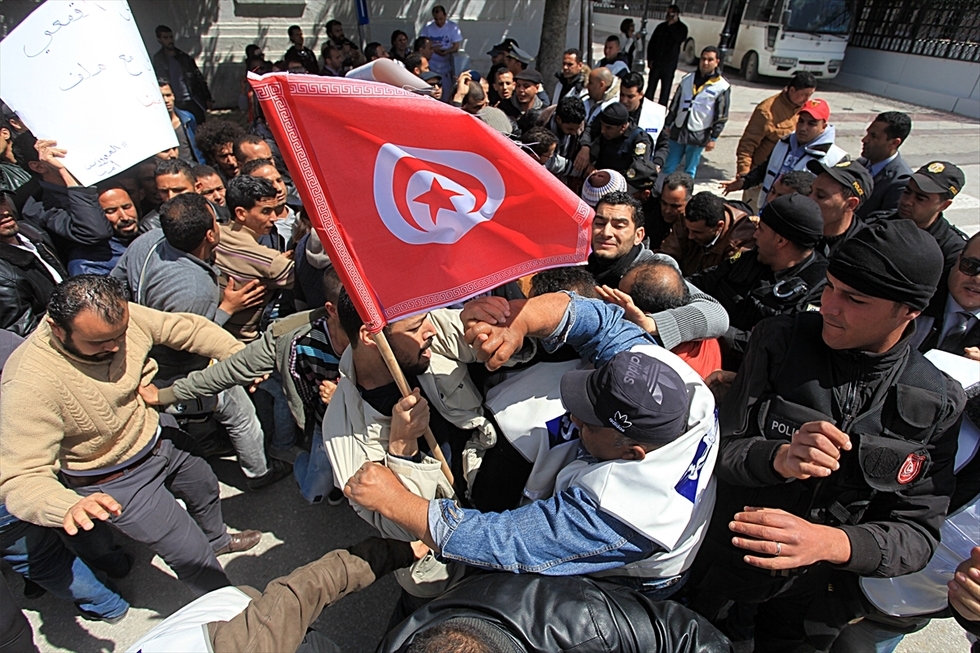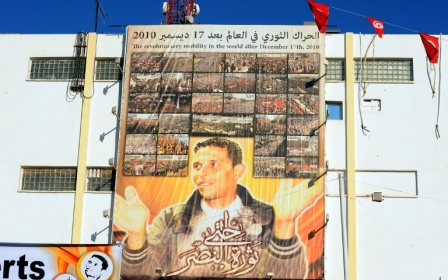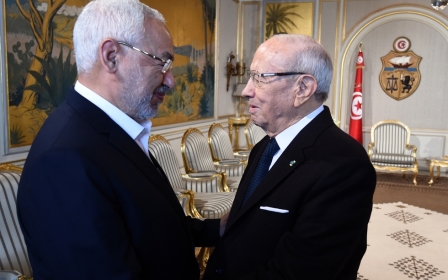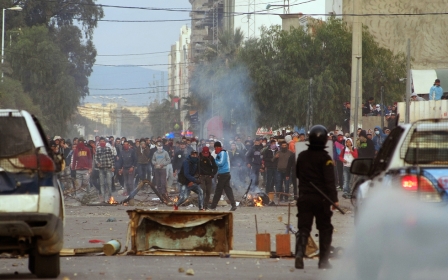Enough with the 'Jasmine Revolution' narrative: Tunisians demand dignity

Five years after the Arab Spring, Tunisia is widely recognised as the last country in the region where the revolutionary wave of 2011 may yet yield sustainable democracy and political stability. Last year the Nobel Peace Prize Committee celebrated a “pluralistic democracy in Tunisia in the wake of the Jasmine Revolution of 2011”. Yet a perfumed bouquet of jasmine is not an apt metaphor for popular sentiment in Tunisia.
Indeed, the troubled, post-revolutionary moment has been marked by a gloomy economy and multiple terrorist acts, including the assassination of elected representatives, attacks on military personnel and the presidential guard, and mass shootings targeting guests of the country in the Bardo Museum and at a beach resort in Sousse. Most recently, ISIS militants failed in their attempt to capture the border town of Ben Guerdane. If terrorism is not eradicated it could jeopardise everything Tunisia has achieved thus far and it could very well undermine the country’s future.
So what does Tunisia need? Let’s start with a strategy. It sounds self-evident but it is exactly the lack of strategy that explains why the government is not fighting effectively against ISIS. Calls to organise a national dialogue on combating terrorism are honourable but they fail to acknowledge that even before we consider mapping out a strategy, the phenomenon needs to be understood first.
Accounts of Tunisian jihadists who have returned from Syria and from their friends and families are challenging pre-conceived ideas. It is clear that religious indoctrination itself can no longer explain why young men and women are joining ISIS.
The Islamic State (IS) differs from al-Qaeda in its objective. IS seeks to establish a state and to do so the terrorist organisation needs land with natural resources, citizens, and a sovereign currency. ISIS has no interest in erasing the inhabitants of territories they have seized since they need citizens to form a state. IS’s dual imperative to wage war and recruit citizens is precisely the reason why the security answer is not enough. We, as a nation, need to beat IS at the recruitment game and that means focusing on recovering citizens’ dignity. That is precisely where our post-revolutionary governments in Tunisia have failed. Our nation has done a poor job of “recruiting” its citizens to invest in the common weal; in counterpoint, this is exactly what IS excels at.
Tunisia’s priority in combating terrorism must be geared toward enabling a dignified life for its citizens; this, it turns out, was precisely the objective of the revolution. The 2010-2011 revolutionaries demanded dignity - not trickle-down economics, nor a caliphate, nor a secular republic - and risked their lives to obtain it.
But the democratic transition was taken over by political dinosaurs polarised by the deeply rooted discourse of Islamism versus secularism. Meanwhile, citizens and especially the youth became more and more alienated from a conversation that seemed irrelevant to the humiliation of being young, ignored, and at best, underutilised. Young Tunisians gained freedom of expression, but did not manage to gain a political voice. In response, IS offered them a political voice and an arena to use their skills.
Recovering dignity is not contingent on job opportunities, the focus of last week’s national dialogue. Rather, dignity is conditioned on decreasing the private debt burden, ensuring access to water, electricity, housing, and health care, and most of all, respecting the new constitution by advancing the rights and liberties enshrined in it.
This means that our elected officials and their appointees are constitutionally obligated to prevent a return to the practices of the ancien regime such as torture and police brutality, just as they are morally obligated to serve more than just the social elite, oligarchs, and the institutions that sustain them. In economic terms, we cannot afford to focus on employment numbers at the expense of income equality and quality of life.
Finally, we need to own our revolutionary narrative. It is puzzling to me to see so many international observers who persist in calling our revolution the “Jasmine Revolution.” In his article for the New Yorker, “Exporting Jihad” (28 March 2016), Georges Packer repeatedly mentions the “Jasmine Revolution,” and he even misquotes activist Ons Abdelkarim, who has confirmed to me she has never used this phrase in her conversations with him. True, the expression was originally coined by Zied Al-Heni, a Tunisian journalist, but since then it has been widely rejected since the symbolism of the jasmine flower evokes touristic coastal areas and fails to include the underdeveloped Tunisian interior, the incubator of the Tunisian revolution.
The disaffected youth of Tunisia wants dignity; they did not risk their lives in revolution in order to peddle garlands of jasmine to tourists in Sidi Bou Said. A revolution in the name of a flower means nothing; how can we know when its objectives have been achieved?
Contrary to the preferred nomenclature of the G7 Partnership of Deauville which offered a poisoned package of neo-liberal reforms under the title of “The Jasmine Plan,” the objectives of the Tunisian revolution are quite clear: dignity. So let’s reject once and for all projections of romanticised narratives that strip our revolution of its purpose. Let’s say no to “jasmine” and stick to the name that was enshrined in our new constitution - the Tunisian Revolution of Dignity -to remind ourselves where our common efforts must remain focused.
-Mabrouka M'Barek is a former member of Tunisia's elected Constituent Assembly 2011-14. You can follow her on Twitter @mabmbarek. This article originally appeared in Tunisia-Live.net.
The views expressed in this article belong to the author and do not necessarily reflect the editorial policy of Middle East Eye.
Photo: Tunisian security forces push back protestors demonstrating against unemployment at Habib Bourguiba avenue in Tunis, Tunisia on 9 April, 2016 (AA).
New MEE newsletter: Jerusalem Dispatch
Sign up to get the latest insights and analysis on Israel-Palestine, alongside Turkey Unpacked and other MEE newsletters
Middle East Eye delivers independent and unrivalled coverage and analysis of the Middle East, North Africa and beyond. To learn more about republishing this content and the associated fees, please fill out this form. More about MEE can be found here.





